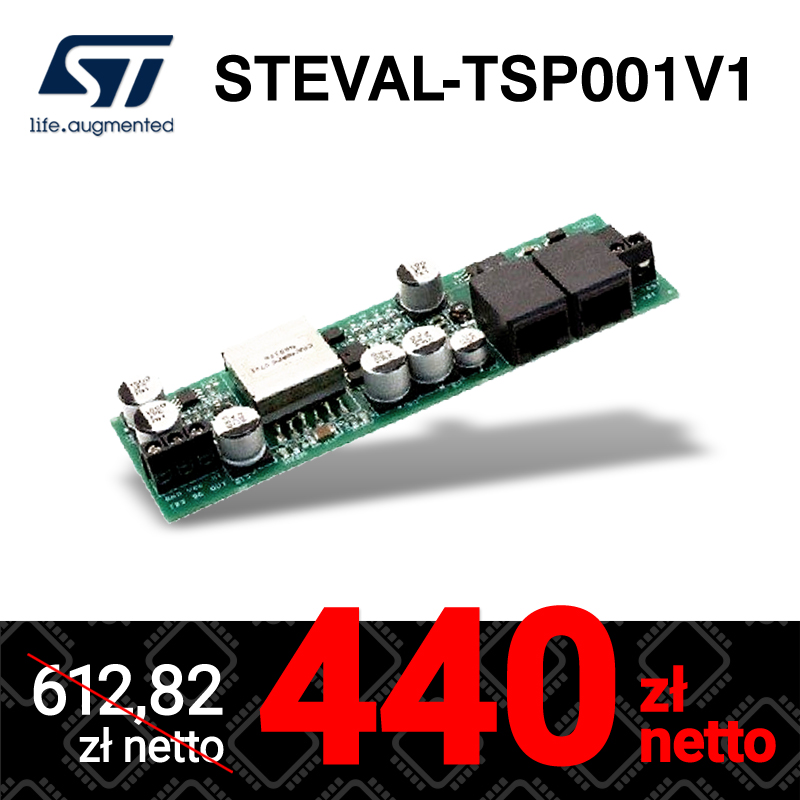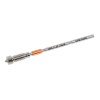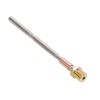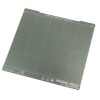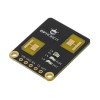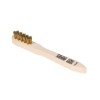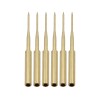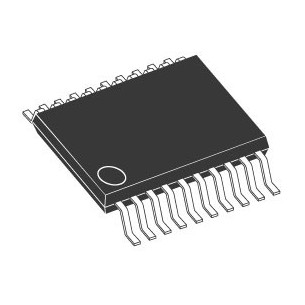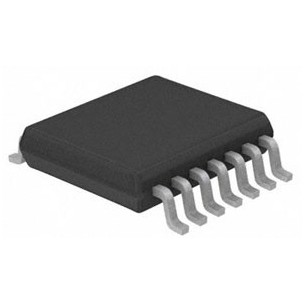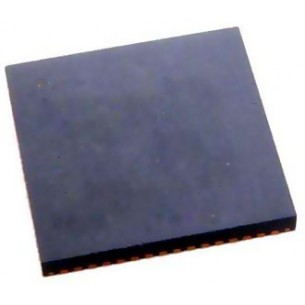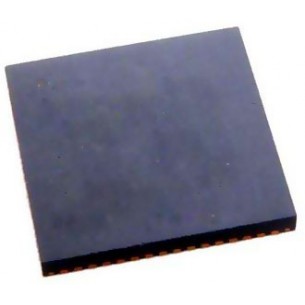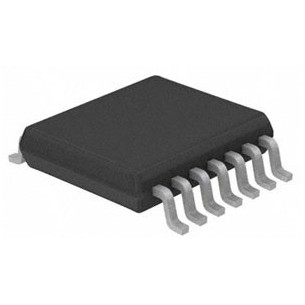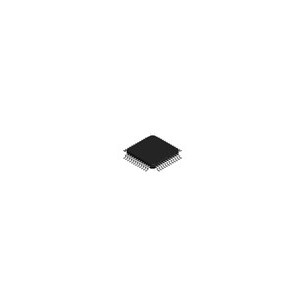Products
Categories
- Main categories
-
- 3D PRINTING
- ARDUINO
- AUTOMATION
- BOOKS
- CYBERSECURITY
- EDUCATION
- ELECTRONICS
- Cables
- Cameras and accessories
- Communication
- Conductive materials
- Connectors
- ARK connectors (Terminal Block)
- Banana connectors
- Coaxial connectors (RF)
- Connectors
- Crocodile clip
- D-Sub drawer connectors
- DC power connectors
- FFC/FPC ZIF connectors
- Goldpin connectors
- IDC connectors
- JACK connectors
- JST connectors
- Jumpers
- Memory cards slots
- Other connectors
- Pogo pin
- Quick couplers
- RJ45 connectors
- Slip ring connector
- Supports
- USB connectors
- USB PD Adapters for Laptops
- WF connectors
- Cooling
- Displays
- Electronic modules
- A/D and D/A converters
- Audio
- Barcode readers
- CAN converters
- Converters USB - UART / RS232
- Cryptographic module
- Data logger
- DDS/PLL generators
- Digital potentiometers
- Encoders
- Expanders of the I/O
- Fingerprint readers
- Galvanic isolation modules
- HMI modules
- Image and video
- JTAG accessories
- Keyboards, buttons
- LED drivers
- Memory card readers
- Memory modules
- Modules with power outputs
- Motor controllers
- Power modules
- Protection modules
- RS485 converters
- RTC modules
- Servo Controllers
- TSOP infrared receivers
- USB Converters - I2C / 1-Wire / SPI
- Voltage converters
- Gadgets
- GPS
- Intelligent clothes
- LED - diodes, displays, stripes
- Luminous wires and accessories
- Machine vission (MV)
- Memory cards and other data storages
- Passive elements
- PC accessories
- Printers
- Programatory czasowe
- Prototype boards
- Relays
- Semiconductors
- A/C converters (ADC)
- Analog systems
- Audio systems
- Bridge rectifiers
- Button
- D/A Converters (DAC)
- DDS synthesizers
- Digital circuits
- Diodes
- Drivers of motors
- DSP microprocessors
- Energy counters
- Energy harvesting
- ESD security
- IGBT drivers and bridges
- Interface systems
- LED drivers
- Logic converters
- Memory
- Microcontrollers
- Optotriacs and optocouplers
- Other
- PLL generators
- Power systems
- Programmable systems
- Resetting systems
- RF systems
- RTC systems
- Sensors
- SoC systems
- Timery
- Touch sensors
- Transistors
- Sensors
- Accelerometers
- Air humidity sensors
- Air quality sensors
- Current sensors
- Distance sensors
- Flow sensors
- Gas sensors
- Gyroscopes
- Hall sensors
- Humidity sensors
- Infrared sensors
- Laser scanner
- Light and color sensors
- Liquid level sensors
- Magnetic sensors (compasses)
- Medical sensors
- Motion sensors
- PH sensors
- Position sensors
- Pressure sensors
- Pressure sensors
- Reflection sensors
- Sensors 6DOF/9DOF/10DOF
- Sensors of liquid quality
- Temperature sensors
- Vibration sensors
- Sound transducers
- Switches and buttons
- Cables
- FPGA DEVELOPMENT KITS
- MEASURING DEVICES
- Anemometers
- Cable testers
- Distance measurement
- Electronic loads
- Generators
- Insulation resistance meters
- LCR meters
- Logic analyzers
- Measures and calipers
- Multimeters
- Network analyzers
- Oscilloscopes
- Other meters
- Panel meters
- Radiation detectors
- Sound meters
- Temperature measurement
- Testery USB
- Voltage indicator
- Wattmeters
- Weights
- MECHANICS
- MINICOMPUTERS (SBC)
- POWER
- RASPBERRY PI
- Accessories for Raspberry Pi
- Audio video cables for Raspberry Pi
- Case Raspberry Pi
- Cooling for Raspberry Pi
- Displays for Raspberry Pi
- Extension modules for Raspberry Pi
- Memory cards for Raspberry Pi
- Power for Raspberry Pi
- Raspberry Pi 3 model A+
- Raspberry Pi 3 model B
- Raspberry Pi 3 model B+
- Raspberry Pi 4 model B
- Raspberry Pi 400
- Raspberry Pi 5
- Raspberry Pi 500
- Raspberry Pi cameras
- Raspberry Pi Compute Module
- Raspberry Pi model A/ B+/2
- Raspberry Pi Pico
- Raspberry Pi prototyping
- Raspberry Pi Zero
- Raspberry Pi Zero 2 W
- RETIRED PRODUCTS
- SALE
- STARTER KITS, PROGRAMMERS, MODULES
- Atmel SAM
- Atmel Xplain
- AVR
- Coral
- DFRobot FireBeetle
- ESP32
- ESP8266
- Feather / Thing Plus
- Freedom (Kinetis)
- M5Stack
- Micro:bit
- Nordic nRF
- Other development kits
- Particle Photon
- Peripheral modules
- PIC
- Raspberry Pi RP2040
- RFID
- RISC-V
- Seeed Studio LinkIt
- Segger programmers
- SOFTWARE
- Sparkfun MicroMod
- STM32
- STM32 Discovery
- STM32 MP1
- STM32 Nucleo boards
- STM8
- Teensy
- Universal programmers
- WRTNode
- XIAO/Qt PY
- Atmel SAM
- WORKSHOP
- Adhesives for hot glue guns
- Chemistry
- Agents for securing electronics
- Cleaning and preserving agents
- Compressed air
- Conductive paints and varnishes
- Distilled water
- Etcher
- Freezing
- Gas for lighters and burners
- Isopropyl alcohol (IPA)
- Label removers
- Lubricants, oils
- Pastes and adhesives thermally conductive
- PCB cleaning products
- Thermopads - thermally conductive tapes
- CNC milling machines
- Crimping tools
- Dispensing needles
- Gluers
- Glues
- Heat-shrink tubing
- Insulation strippers
- Knives
- Laboratory power supplies
- Microscopes
- Mini drills and grindrers
- Organizers
- Personal protection (OHS)
- Power tools
- Sandpapers
- Scissors
- Soldering
- Antistatic mats and accessories (ESD)
- BGA balls
- BGA rework stations
- Brushes and ESD brushes
- Desoldering Wick
- Handles, magnifiers
- Heat guns
- Heaters and soldering irons
- Laminates
- Portable soldering irons
- Silicone Soldering Mats
- SMD Accessories
- Soldering accessories
- Soldering chemistry
- Soldering irons
- Soldering pastes
- Soldering pots
- Soldering stations
- Soldering tips
- Sponges and cleaners
- Stand for soldering irons
- Tin
- Tin extractors
- Ultrasonic cleaners
- Tapes (aluminum, kapton, copper, insulating)
- Tools
- Tweezers
- Vices
- Workshop lighting
- 3D PRINTING
New products
New products New products
Category: DDS synthesizers
DDS Synthesizers – Innovative Solutions in Digital Technology
DDS synthesizers (Direct Digital Synthesis) represent a modern approach to generating highly precise and stable signals. By utilizing advanced digital algorithms and semiconductors, DDS synthesizers offer significantly greater accuracy and flexibility compared to traditional analog generators. This technology allows for quick and precise frequency tuning, which is crucial in applications requiring high signal stability and quality. Additionally, DDS synthesizers are characterized by low phase noise and the ability to generate signals over a very wide frequency range, making them an ideal solution for advanced technological applications. With high integration with digital systems, DDS synthesizers are also more resistant to environmental changes, further increasing their reliability and versatility in industrial applications.
There are 8 products.
No product available!
No product available!
Direct Digital Synthesizer, 400 MSPS 14-Bit, 1.8 V CMOS, TQFP48, Analog Devices, RoHS
No product available!
Wide Range of Applications
DDS synthesizers are used in many fields, from telecommunications, through measurement instruments, to advanced radar and navigation systems. In telecommunications, DDS synthesizers are used to generate RF and microwave signals, providing high precision and the ability to easily change signal parameters. In measurement instruments, DDS technology allows for accurate testing and calibration of devices, which is essential in research laboratories and industry. Additionally, in radar systems, DDS synthesizers enable precise frequency control, translating to better object detection and identification. In navigation, advanced DDS functions allow for the generation of stable reference signals, which is crucial for accurate positioning.
Forecasted Technological Development
The development of DDS technology is ongoing, and forecasts indicate further growth in its applications and capabilities. As advancements in semiconductors and digital technologies continue, DDS synthesizers are becoming increasingly advanced, offering even higher precision, speed, and flexibility. In the future, we can expect DDS synthesizers to be even more energy-efficient, compact, and easier to integrate with other electronic systems. Developments in digital signal processing technologies open new possibilities in wireless communication, medicine, and the space industry, where precise signal generation is crucial for complex mission execution.
Future Prospects
DDS synthesizers are a key component of modern electronic systems, providing precise and stable signal generation. Their technological advancement, wide range of applications, and dynamic development make them an indispensable tool in many industries. It is worth following the development of this technology to fully leverage its potential in the future. The application of DDS synthesizers in new areas, such as the Internet of Things (IoT) and 5G technologies, highlights their growing role in the digital world. With continuous innovations, DDS synthesizers will continue to play a crucial role in shaping the future of technology.

